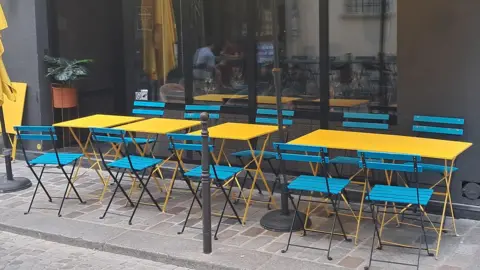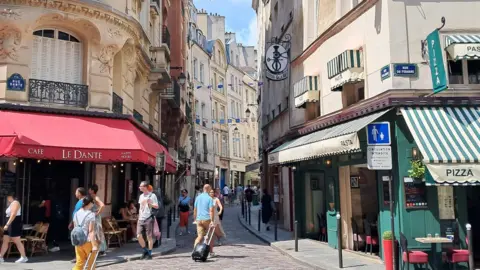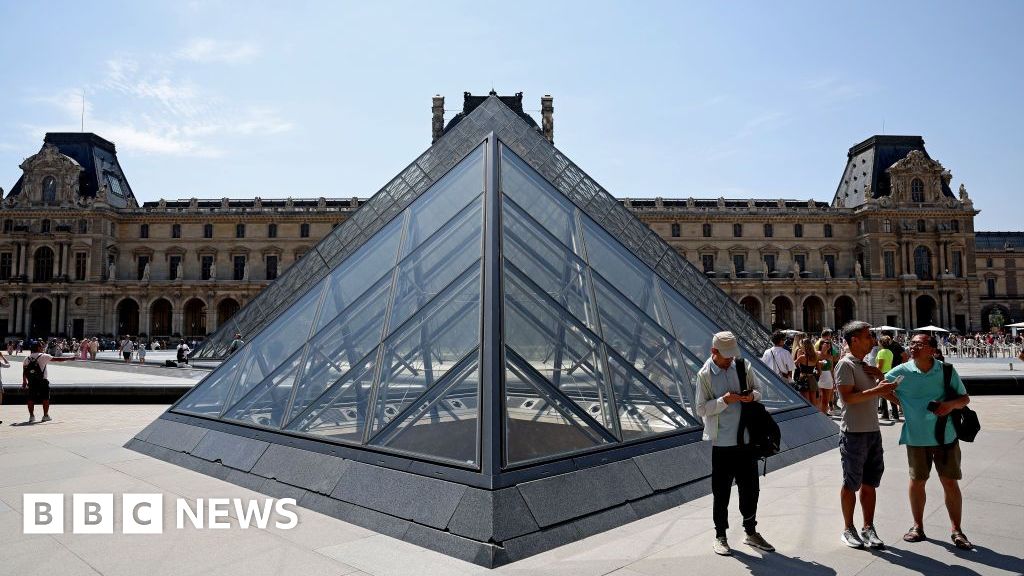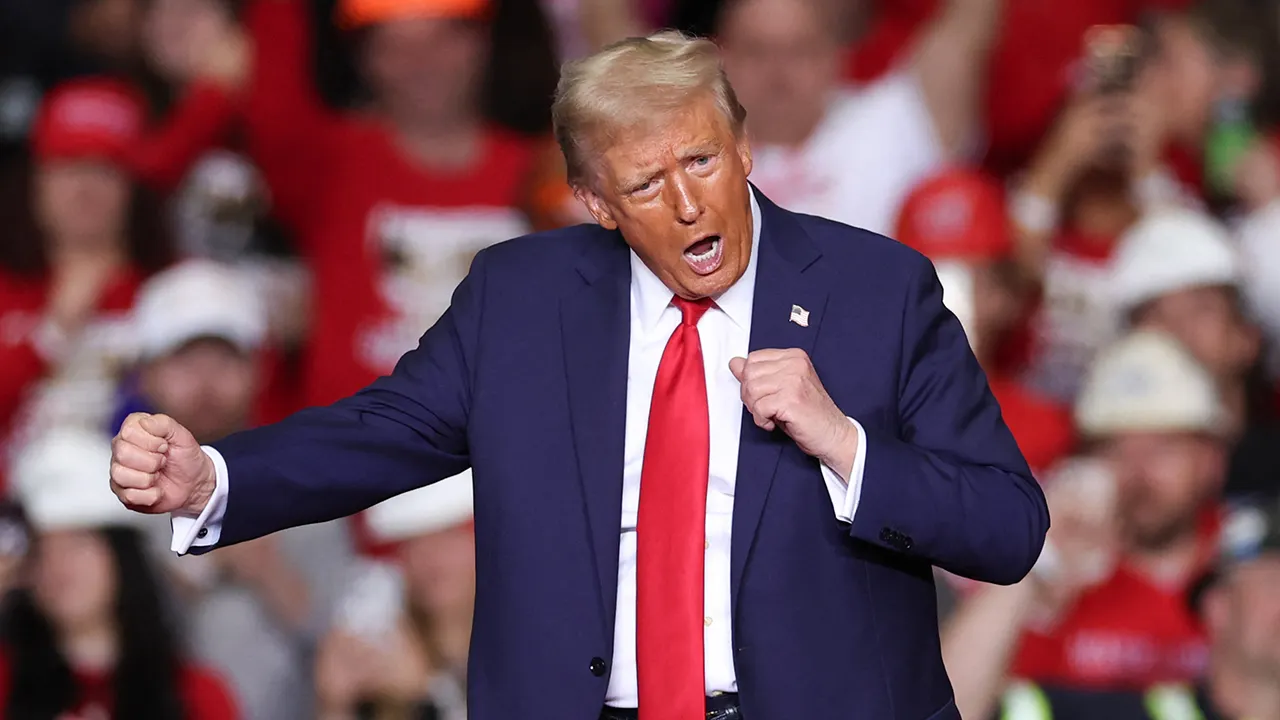 James Fitzgerald / BBC
James Fitzgerald / BBCFor all those concerns about high prices and big crowds ahead of the Olympics, now might just be an unexpectedly good time to holiday in Paris.
Hotels and restaurants have told the BBC they have dropped their prices to entice customers – after what some call a “catastrophic” downturn in takings during the Olympics that have left them asking what the Games has done for them.
The French capital might seem to be the centre of the world for those watching the sport on TV – but the city’s relatively quiet streets and empty dining tables tell a different story.
Earlier this week, local media ran reports of a “deserted” Disneyland and of Parisians’ bemusement as they managed to secure seats on metro trains at rush hour.
So, what is happening?
Analysts suggest that many Parisians have left the city in droves for the summer, as is their tradition. But also, some overseas visitors have been put off by concerns around price-gouging and overcrowding on an Olympic scale.
One of the locals who used the word “catastrophic” was a restaurateur called Lies in the usually bustling Latin Quarter, who said July had been his worst month for 25 years. During the height of Covid, at least people continued to order meal deliveries, he told the BBC.
Tourists had been put off coming to the area because of security blockades that were put in the place for the previous week’s opening ceremony, Lies suggested.
Another nearby restaurateur hovering in his doorway, Yarva, said would-be visitors had chosen not to pay hotel prices which multiplied several times ahead of the Games.
The event was “only for the rich”, he said, and used a hand gesture to indicate he thought the price inflation had been crazy.
 James Fitzgerald / BBC
James Fitzgerald / BBCAhead of the Games, airlines warned there was a low appetite for journeys to Paris, with both Delta and the company that owns Air France predicting an impact on their business.
“Unless you’re going to the Olympics, people aren’t going to Paris,” the Delta boss told CNBC.
This was reflected in flight prices that were well below the usual asking price for this time of year, according to travel expert Simon Calder, writing this week in The Independent.
Next-day one-way flights from UK cities were as low as £31 ($39) per adult (from Edinburgh) at the time of writing this article. However, tickets for the Eurostar trains, which were last week affected by a sabotage attack on the French railway network, were considerably higher.
June and July saw an “avoidance effect”, said Raphael Batko of hotel marketing firm Doyield, which represents about one in 20 of the city’s hotels. He also used the word “catastrophic” to describe the phenomenon, though he said visitor numbers had picked up and were now satisfactory.
A similar avoidance phenomenon has been noticed in previous Olympics, including in London in 2012, when businesses suggested that the Games had deterred visitors and shrunk their profits.
 James Fitzgerald / BBC
James Fitzgerald / BBCWhat remains to be seen is whether the emergency action taken by the hospitality industry will be enough to salvage the Olympic trade for many Parisien businesses.
With restaurants dropping their prices, it was now possible to get a meal for as little as €8 (£6.80, $8.70) in the Latin Quarter, claimed Riad, the proprietor of the Olympie diner, as he tried to entice diners.
Hotels, too have tried a similar trick – largely reversing the earlier rises which appear to have been so off-putting. Tourism authorities confirmed that average prices had returned to €258 (£219; $279) per night during the Games, following a massive hike that had previously seen them peak at €342 last month.
The BBC saw that a number of Airbnbs on offer were advertising price reductions, although the company said prices had remained stable since the start of the year, and more locals had been opening their homes in host cities.
Individual hoteliers in Paris spoke of mixed success.
One reception manager, Dino, said bookings had reached normal levels – but only after rates were slashed by half when things “looked bleak”.
Another, Isabelle, said her own price drop had been ineffective and lamented that “we didn’t gain anything from the Olympics”.
 PA Media
PA MediaAs well as the sport, there were plenty of good reasons to come to the French capital for the summer, said Christophe Decloux, head of the Choose Paris regional tourist board.
He cited the city’s rich cultural offering, plus smooth transportation and a “very joyful” atmosphere during the Games.
“Paris is usually very calm in late July and August because people leave for the holidays,” he said, “and right now it is just as calm as usual in August except in some areas around the venues where people are bonding over the sport.”
Organisers of Paris 2024 have trumpeted the positive effects of the Games on Paris following record ticket sales.
It remains possible to sign up to see events, as tickets are released each day. About 800,000 of them are still up for grabs, organisers told the BBC on Friday.
The sporting spectacle itself has already proven memorable – and with some disgruntled businesses doing everything they can to coax in visitors, last-minute bookers to Paris might find themselves in with a chance of scoring a bargain.
















/https://tf-cmsv2-smithsonianmag-media.s3.amazonaws.com/filer_public/60/27/6027ba76-7bfe-46a1-9501-8d116a7a58fb/as11-40-5947.jpg)





Discussion about this post